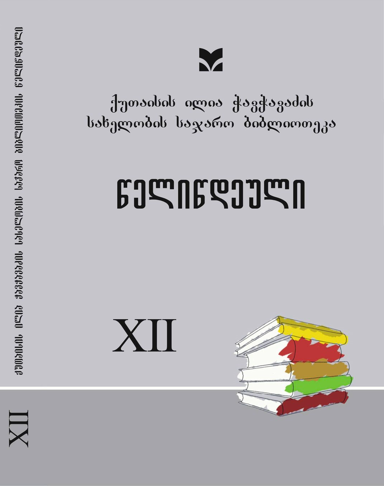მწერლობის აღორძინების ისტორიიდან 1870-1910-იანი წლების აჭარაში
DOI:
https://doi.org/10.48614/yk.12.2020.135-144საკვანძო სიტყვები:
აჭარა, ოსმალეთი, ქართული მწერლობა, აღორძინება, ბათუმიანოტაცია
When discussing issues related to the revival of literary life in Adjara, one often understands the fact that none of the samples of Georgian literature created in this region from the XIV century to the last quarter of the XVIII century has reached us. The last monument of literary thought created in this region and reached us is the work of the great Georgian writer and thinker of the XIII century - Tbeli Abuseridze with encyclopedic content - “New Miracles of St. George”. This heartbreaking reality was conditioned by two circumstances: first, by the fact that our brothers, who had been forcibly torn from the national entrails of their ancestors, were forced to surrender their thoughtful mother tongue to the Ottomans; And, secondly, the written texts created in Georgian by their separate representatives could not reach us due to the historical tragedy. To prove the existence of an artistic word in Adjara of the late centuries, we must pay special attention to the oral texts created there at that time and preserved to this day.
Gulo-Agha Kaikatsishvili (1840-1923), first of all, should be remembered here as one of the people who stood at the beginning of the revival of literary life in Adjara. He is chronologically one of the first publicists to publish letters from Adjara during the Ottoman period in the Georgian press. Sheriff Khimshiashvili (1829-1892) and Abdul Mikeladze (1853 1919) also made significant contributions to the revival of artistic speech in the newly annexed Adjara to Georgia. The local public speakers also played a significant role in the revival of writing in Adjara. Unfortunately, since they expressed their thoughts mainly in the form of oral poetry, a large part of their creativity is lost. In the period after the annexation to Georgia, the basis for the revival of literary life in Adjara was also prepared by the writers and publicists working there.
Memed and Haidar Abashidze have taken this process to a high professional level since the 1900s. Since the twenties of the last century, the literary life in Adjara has reached a qualitatively new level, and the writers living in this region have made a significant contribution to the treasure of Georgian literature with their genre-diverse works.




